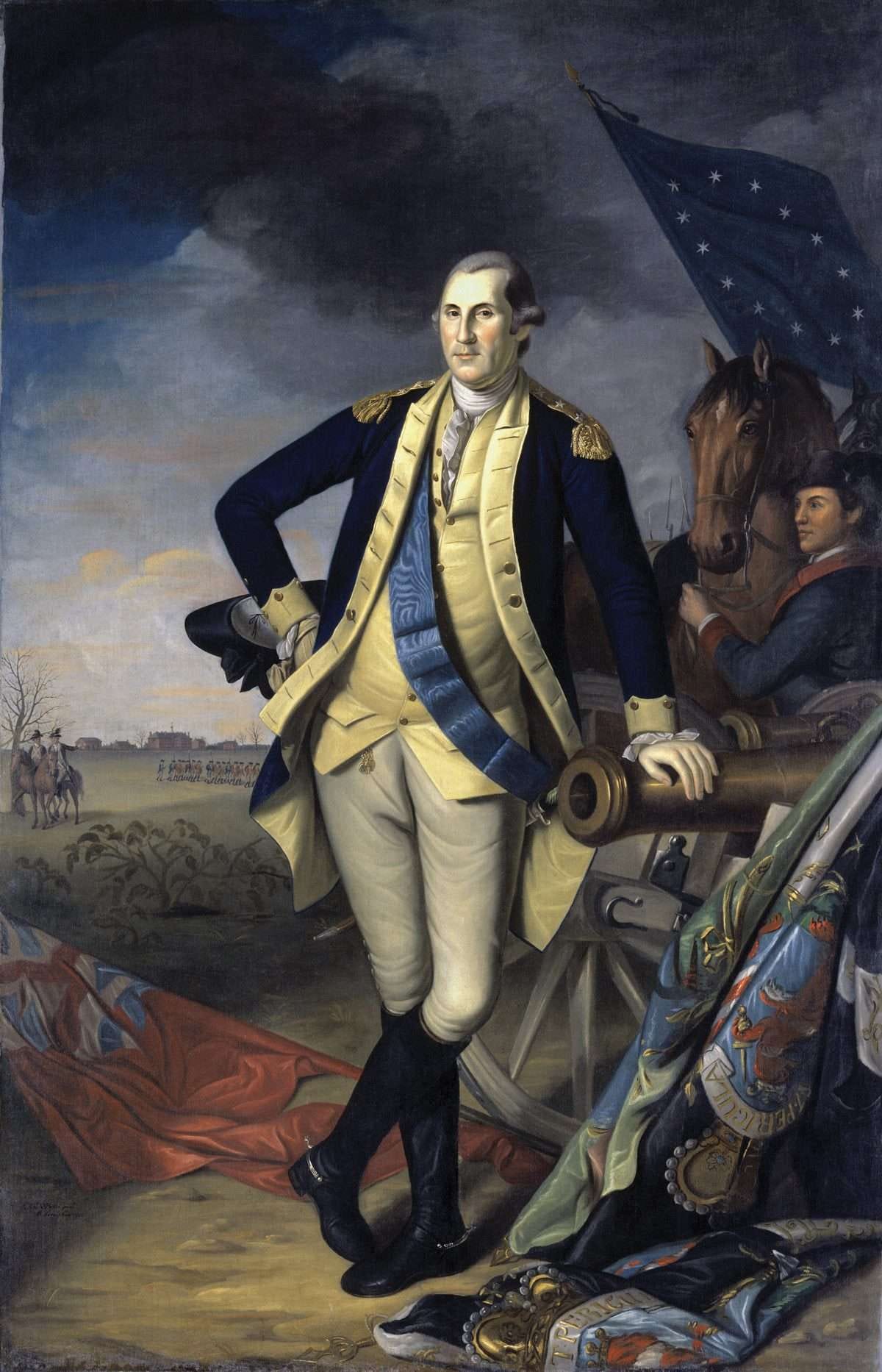A master class in command
Did planters make better generals?
These days I’m reading and writing about George Washington. And I’m trying to figure out what made him the successful general he became. He wasn’t brilliant tactically. In fact he was often outmaneuvered by his British counterparts. He wasn’t compellingly eloquent. His public speeches were few and unremarkable. His letters are filled with sentences that run on and on. His political dealings with civilian officials of the Continental Congress and the states were often testy and unproductive.
But he knew how to command. He knew how to get the soldiers serving under him to do what he wanted them to do. He could be stern. He punished soldiers who fell asleep on duty or tried to desert. He could be kind, tempering sternness with mercy. He recognized that authority is not the same thing as power. If he asked too much of his men, they could mutiny. Some did.
Yet he held the army together during disappointment and trial. He lost more battles than he won. But he won the battle that counted, at Yorktown.
How did he learn to do this? To be sure, he’d had years of command experience before he was appointed general-in-chief of the Continental Army. He led the Virginia Regiment during the French and Indian War. Yet even in his early days in that position, he displayed the gift of command. Where did the gift come from?
In civilian life, Washington was a planter—the master of a plantation, as commercial farms in the southern colonies and then states were called. He inherited property, purchased property, and married into property. The workforce on Washington's properties consisted of hundreds of people, mostly enslaved.
In the mid-18th century, the largest business enterprises in America were plantations. A successful planter had to master logistics, strategic planning and the techniques of command. In other words, he had to display the same skills as a successful general.
The overlap was greater for a planter than, say, for the owner of a large industrial firm, if such had existed at the time. Or, for that matter, for the owner of a large farm operating with free labor.
Soldiers are not slaves. Yet they are bound to follow orders in a way free laborers are not. A free laborer can walk away from a job at will. A soldier cannot, any more than a slave could. Dissatisfied soldiers did try to flee Washington's army, just as slaves tried to flee his plantation. As a planter, Washington sent search parties after fugitive slaves. As a general, he sent search parties after fugitive soldiers.
But again, in both cases, he understood the limits of coercion. Really desperate slaves would risk anything to make their escape. Really desperate soldiers would act likewise. Both cases represented a failure of leadership, for they brought on costs of capture and costs to morale that weakened the overall collective effort.
Washington could appeal to the patriotism of his soldiers. He did so, for the most part successfully. Appeals to patriotism were largely lost on slaves. Yet within the limits of the institution of slavery, Washington didn't abuse the prerogatives of his position. He rarely sold slaves, indeed forbidding sale in his will. He kept families together when he could. At a time when male slaveowners often forced themselves sexually upon female slaves, fathering children who became their slaves, stories or rumors of such behavior by Washington were noteworthy for their absence.
Military command is at heart an exercise in human relations. So is running a business, including the business of a plantation. Apt students learn from experience. And they extrapolate from one experience to others that share important characteristics. Washington was an apt student.
For generations, southerners were overrepresented among American military officers. From colonial times until the 20th century, these southern officers were exclusively whites. Until the Civil War, the class from which these officers were drawn was the slaveholding class.
Did this make them better generals, colonels and so on?
It would be hard, if not impossible, to prove that it did. There were outstanding generals on the Union side in the Civil War who never owned slaves or who, like Grant, did so on a small scale.
Yet one has to imagine that the experience of command acquired in running a plantation gave the planter-general at least a head start over other officers.
There's one other angle to this question that doesn't prove or disprove the conjecture but is related to the underlying topic. Washington got the job of commanding the Continental Army in large part because he was from Virginia. Until the time of his appointment in 1775, the hotbed of revolutionary fervor in America had been Massachusetts. The Continental Congress wanted to demonstrate that the uprising against Britain was an American affair, not a New England conceit. Virginia was the most populous colony, and Washington was its most prominent officer. A prominent Virginian in those days was necessarily a planter. So whether or not being a planter made Washington a better commanding general, it was a necessary condition for his becoming commanding general in the first place.


Fascinating insight. I hope this is part of a new biography of George Washington. . .
Mr. Brands, I’ve known you were a genius since your masterful history of the ‘California’ gold rush! Not since De Tocqueville and Henry Adams have the global implications and actions resulting from a nation’s prematuro extraction from an almost exclusively rural culture, worldview and economy into a freshly globalized world which was still taking baby steps, and perhaps in some senses is still doing so—in comparison with the millennia at the backs of Britain and France.
America is in her infancy; she is still an ongoing experiment; and—some shall say with surety at their backs, a failure. But it is far too early to make anything approaching an informed—let alone an educated estimate of these premises.